Migrant crisis: Pope returns from Greece with 12 migrants
- Published
The migrants joined the Pope on the flight back to the Vatican
Pope Francis has taken 12 Syrian migrants back with him to the Vatican after visiting a camp on the Greek island of Lesbos.
The three families, including six children, are all Muslim and had their homes bombed during the Syrian war.
The Vatican said in a statement, external that Pope Francis wanted to "make a gesture of welcome'' to the refugees.
Thousands of migrants are now stuck on Lesbos after last month's EU-Turkey deal to try to ease the flow.
All of those leaving with the Pope were already living on Lesbos before the deal was implemented, the Vatican said.
They were reportedly selected from lots drawn, and will be looked after initially by the Sant'Egidio community, known for their charity work.

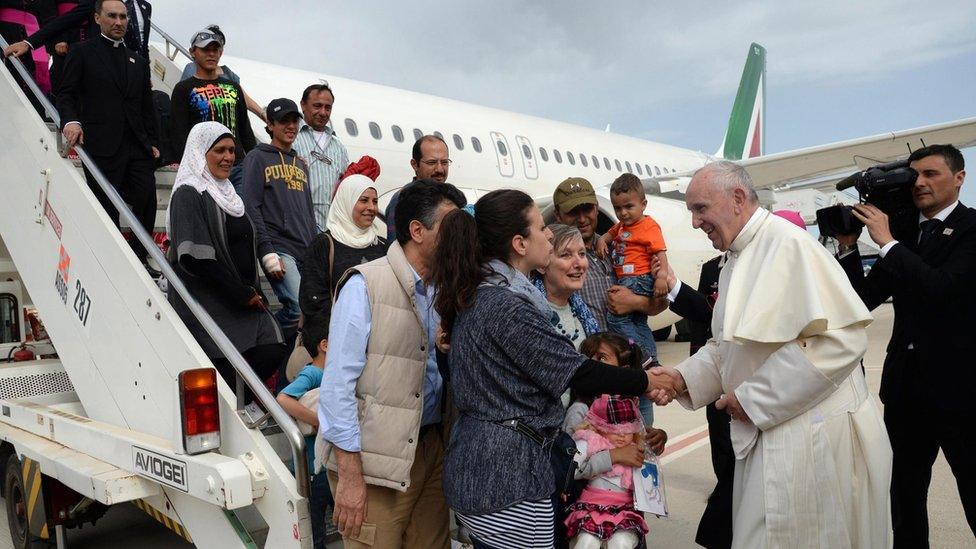
Pope Francis greeted the migrant group as they disembarked
Who are the 12 Syrians?
One family is made up of two engineers, Hasan and Nour, and their two-year-old son. They came from Damascus and lived in Zabadani, an area near the Lebanese border that has been besieged by regime forces and heavily bombed. They fled to Turkey and took a boat to the Lesbos.
Ramy, a teacher, and Suhila, a tailor, are both in their 50s and come from Deir al-Zour, near the Iraqi border - a city attacked by so-called Islamic State. The couple arrived in Greece with their three children in February via Turkey.
Osama and Wafa come from the Damascus suburb of Zamalka. Wafa says the youngest of their two children still wakes up every night - and even stopped speaking for a time.
All had their homes destroyed by bombing, according to the Vatican.

Under the EU-Turkey agreement, migrants arriving illegally on the Greek islands from Turkey after 20 March will be deported unless they successfully claim for asylum.
In return, for every Syrian returned to Turkey, the EU will take another Syrian directly from Turkey.
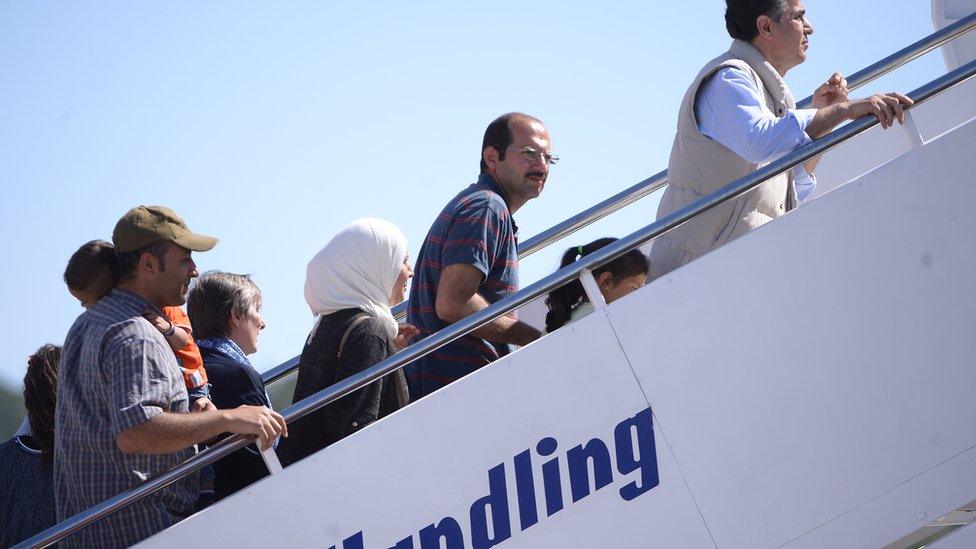
The 12 Syrian migrants travelled on the same plane as Pope Francis
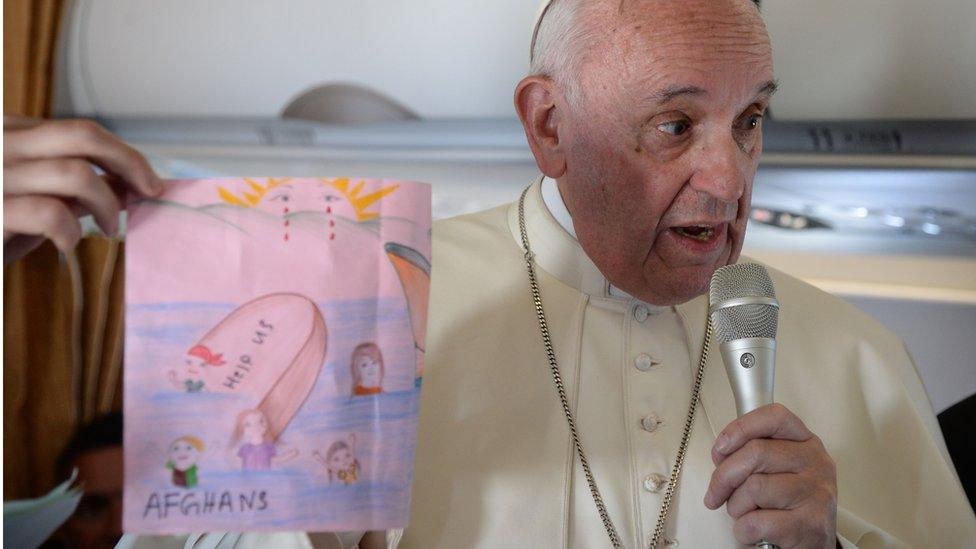
On the flight he showed reporters a drawing he had been given by a migrant girl
Pope Francis earlier told migrants living in the Moria camp - some of whom are facing being sent back - "you are not alone".
About 3,000 people are being held in the camp on Lesbos, some of whom lined the streets with banners pleading for help as the Pope arrived.
Some wept, others threw themselves at his feet or chanted "freedom".
In his speech, the Pope acknowledged "the great sacrifice" the people in the camp had made, saying he wanted to "draw the attention of the world to this grave humanitarian crisis".
He told the camp's residents: "Do not lose hope. The greatest gift we can offer to one another is love."
Greek Prime Minister Alexis Tsipras, who also met the pontiff, said the visit "sends a message that surpasses Greece's and Europe's borders".
The Vatican has stressed the Pope's visit was purely humanitarian and religious in nature and should not be seen as a criticism of the deportations.
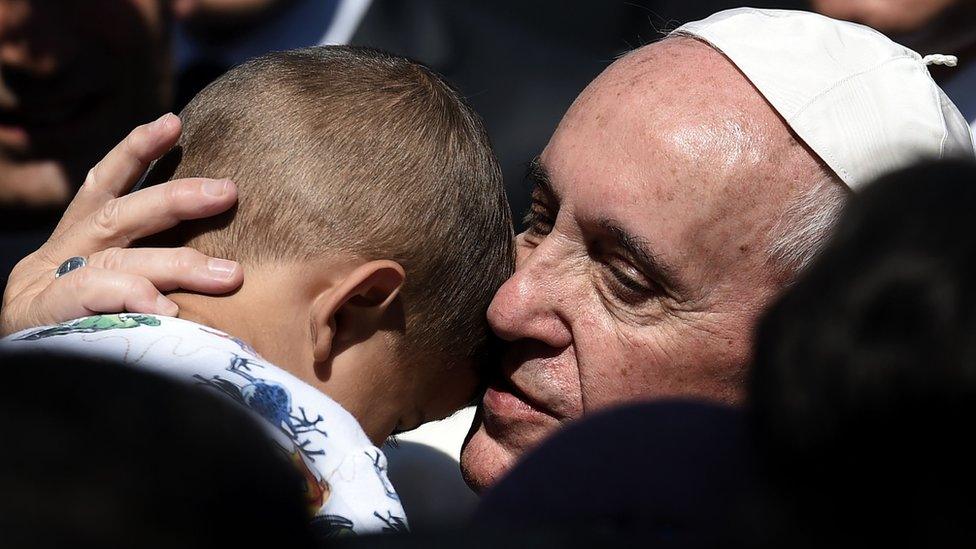
Pope Francis told migrants in the Moria camp not to give up hope
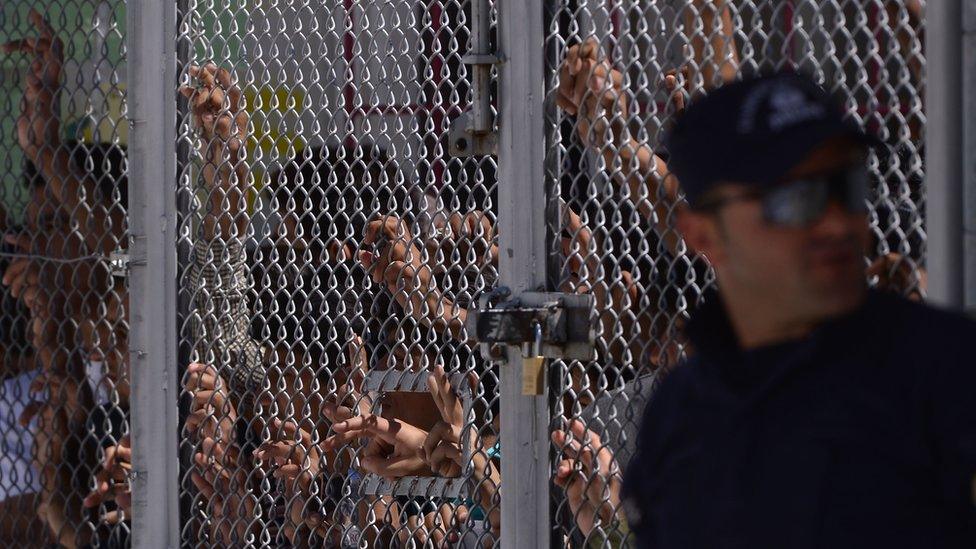
Just over 3,000 people are housed in the Lesbos camp
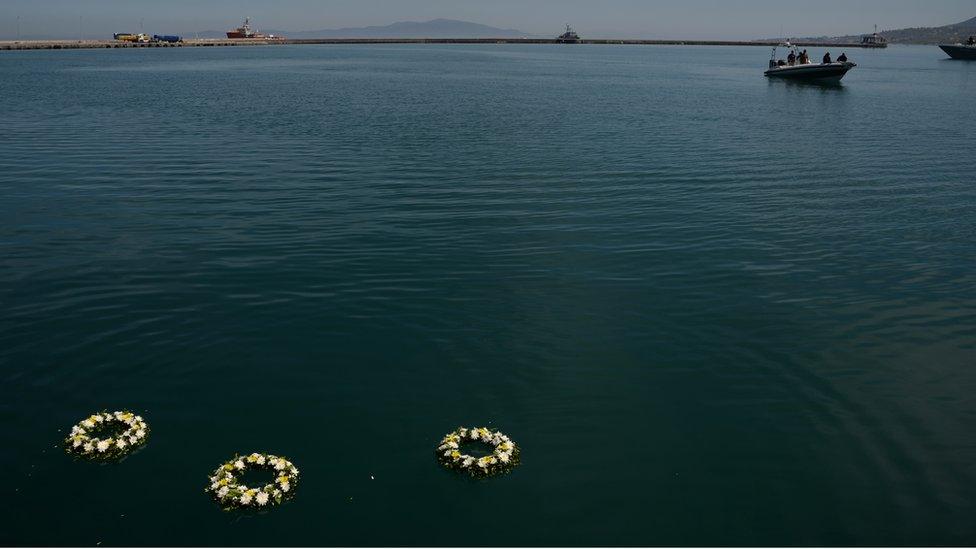
The EU-Turkey deal aims partly at deterring people making the dangerous sea crossing
In September, the Pope made space in the Vatican apartments for two refugee families, urging Catholics across Europe to play their part to resolve the crisis.
He also visited the Italian island of Lampedusa in 2013 to show similar support for migrants after dozens died trying to reach it.
Migrant arrivals in Greece have fallen significantly this year, following the closure of borders and the announcement of the EU-Turkey deal.
In the week to 13 April, arrivals in Greece were 76% lower, external than the previous week, the International Organization for Migration (IOM) said.
But over the same period arrivals into Italy surged, according to the IOM - 173% higher than the previous week.
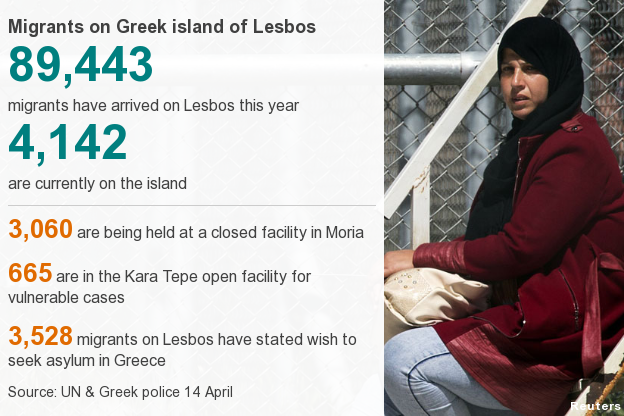

A note on terminology: The BBC uses the term migrant to refer to all people on the move who have yet to complete the legal process of claiming asylum. This group includes people fleeing war-torn countries such as Syria, who are likely to be granted refugee status, as well as people who are seeking jobs and better lives, who governments are likely to rule are economic migrants.